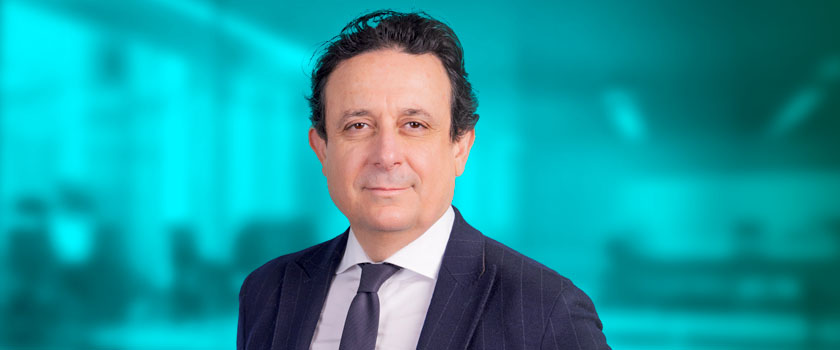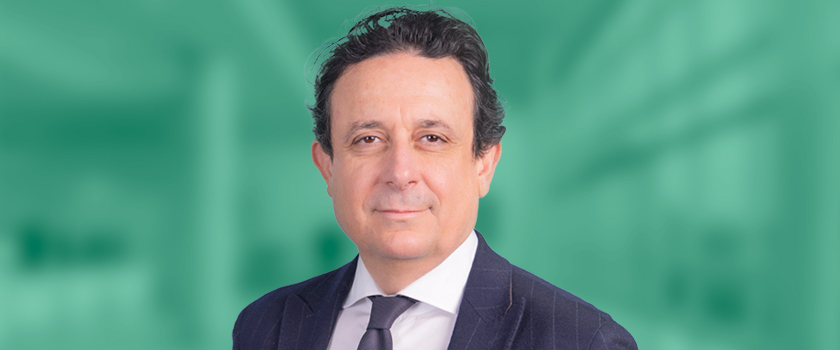As we head into 2023, what will be the most worrying issue for the markets? The risk of a recession?
A recession is likely to occur. Business sentiment indicators are pointing that way. But the financial markets have not taken this into account. If you look at corporate earnings expectations, they are far too high. At the moment, the consensus is for earnings growth of 5% in 2023. Typically, in a recession, profits shrink by 10–20%. This gap between expectations and reality is something to be wary of.
Which parts of the world will escape the recession?
Emerging countries. China in particular, once its growth recovers, especially given that it started to take fiscal measures in October to stimulate demand. The weakening of its currency since the summer has also helped to maintain exports. These factors combined with the post-Covid reopening will have a powerful effect.
What about the other emerging countries?
We are optimistic about Brazil, which, as a major supplier of raw materials to China, will benefit from the renewed growth in that country. In addition, they have been proactive in fighting inflation. The only issue is how smoothly the new government will be set up, and that can always throw up challenges.
India, which is benefiting from the unrest in China, is also doing well. It is receiving investment from companies that don't want to put all their eggs in one basket and are seeking to diversify the countries they produce in. India is also benefiting from major investments in its infrastructure. The sticking point is energy prices and how to deal with any further increases.
Will inflation still be a concern in 2023?
The discussion will shift from inflation, which will peak and then decline, to growth and its sustainability. One issue that has not been talked about enough is the rise in government debt. For years, this was not a problem because rates were at zero, or even below. But this will change from 2024. It will be an issue for the markets from the second half of 2023 onwards, and not only in Europe. Of course, Italy is an obvious case: remember that when the euro crisis broke out in 2010, its public debt was already over 100% of GDP and ten-year interest rates stood at 5%. Today, its debt has jumped to 150% and rates are again close to 5%. In France too, public finances are deteriorating. As for the United States, the Congressional Budget Office predicts that by the end of the decade, the interest burden will be the main expense on the US federal budget.
For asset management, 2022 has been particularly difficult with all asset classes suffering. Can we expect a less turbulent 2023?
2023 should be a better year in some asset classes. But investors should still be careful. In our opinion, equities have not yet completed their correction. As markets better recognise the risk of recession, there will be an adjustment in earnings expectations which should serve as the catalyst for the next phase of the bear market. On the positive side, investors are finally being rewarded for risk in the bond market for the first time in years. So this is the time to look at bonds in longer-duration, higher-quality segments.
Without central banks’ quantitative easing programmes, has this market become more complicated again?
Without the support of central banks, which have been known to intervene at certain levels, there is more risk in the markets. Investors will have to take this into account. But it will also open up hunting ground for active managers to find opportunities and control risks. These conditions are right for hedge funds to make a comeback.
So equities have not bottomed out, but some sectors will still do well?
In the past few years, investors could do well simply by focusing on equity indices, because with central bank interventions, everything tended to go up at the same time. Things are very different now. Stock-picking and active management are set to become very attractive again, like during the 1970s oil crisis and ensuing inflation. From 1973 to 1980, the S&P 500 stagnated and only three sectors rose, including energy, while the remaining sectors delivered negative returns. This dispersion rewarded stock pickers and active managers over index or passive investors.
We expect to see similarly significant dispersion in 2023. With no inflation and negative interest rates, households, corporates, and governments were able to borrow and spend freely. That is now over. With high inflation and positive interest rates, all economic actors will be forced to make uncomfortable choices. Like in the 1970s, we expect many will choose spending that secures energy supplies – both traditional and renewable – and increases energy efficiency in homes and factories. While such a spending shift will help reduce costs, much of it will come at the expense of wider consumption.
The European economy is likely to suffer more in 2023, but are there still any investment opportunities?
Yes, especially because European companies are well positioned in the sectors that are set to see investment inflows in the coming cycles, i.e. energy, industrials and materials. Europe is home to leading global energy producers as well as heavyweights in the renewables sector. Moreover, many European materials players now have clean balance sheets and strong dividends.
Won’t 2023 be the year of the tech rebound?
Tech will continue to play a role in driving innovation and growth in the global economy. However, unlike in 2008, for example, technology is much more ubiquitous, and so in some segments it will be less easy to generate the kind of growth seen in the past decade. Also, some segments may become more cyclical and evolve more like the broader economy with a few big companies dominating. While technology spending will continue, especially in areas like the cloud and IT infrastructure, tech will increasingly be competing for medium-term investment with areas like energy security and efficiency.
What will happen to Switzerland?
We expect that Switzerland will avoid a recession in 2023 as it has done a good job of containing inflation. But as the country is not isolated, investors should expect its economic growth also to slow down. For the first time since the euro crisis, the Swiss National Bank will diverge from the European Central Bank’s policy by raising rates more aggressively to fight inflation. This should allow the franc to appreciate, which makes investment in Switzerland attractive. It is also attractive because it is home to companies in certain sectors that are expected to perform better, such as pharma or some of the smaller companies active in the energy value chain and energy efficiency.
Is sustainable finance still a topic for your clients?
In the last two years, sustainable finance has moved from a social issue to a security issue. First in energy, but I think metals and food will be part of this trend as well. As themes such as biodiversity move to the forefront, companies will pay increasing attention to the origins of materials across their supply chains.
What does this mean for investors?
With sustainable finance taking hold in corporate board rooms, investors will be better able to identify both risks and opportunities, as we have seen in energy in 2022. Countries and companies heavily reliant on unsustainable energy sources were disproportionately hurt by the energy crisis while those which proactively secured reliable and, in some cases, sustainable energy sources have benefitted. As these trends spread beyond the energy value chain, this risk–reward trade-off should become increasingly visible for investors to take advantage of.









